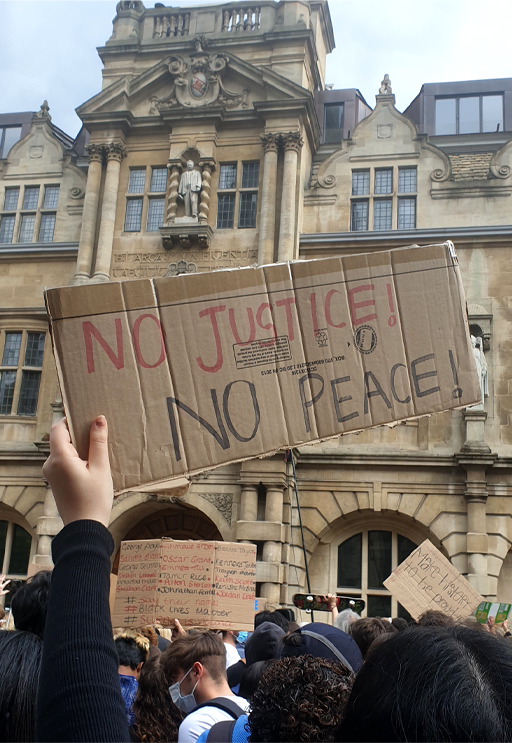1 Approaches: thinking through empire
Though today we live in a world dominated by nation-states, as recently as the 1930s colonies and ex-colonies accounted for around 85 per cent of the world’s land surface (Fieldhouse, 1982). At that point, the British Empire alone governed about a quarter of the world’s population and administered about a quarter of its land mass. More generally, empire has been ‘the default form’ of government for much of history (Darwin, 2007). What does empire mean for people today?

The history and legacies of empire have been debated within academic and popular history. The subject can be deeply personal: it forms part of many peoples’ sense of self. It is also political: issues of inequality, restitution, and repair are live debates among nation states.
The way that the history of empire is told has shifted within different political contexts. We can see this by comparing two contrasting understandings of empire that emerged out of very different moments in time.
Niall Ferguson’s Empire: How Britain Made the Modern World (2003) claimed that the British Empire’s provision of ‘public goods’ (such as forms of democracy and of free trade) helped to shape the world for the better, despite its record of conquest, coercion, and enslavement. Written in the wake of terrorist attacks on the United States in 2001, the text emerged from a Western ‘neoconservative’ vision of intervening in and modernising ‘failed states’, through counterinsurgency and reform.
By contrast, twenty years later numerous books have been published claiming that empire’s main impacts lay in physical and cultural violence, and long-lasting inequities. In the intervening period political movements for reparations, cultural restitution, and racial justice, including Black Lives Matter, have demanded a critical accounting with empire. Caroline Elkins’ Legacy of Violence: A History of the British Empire (2022) argued that ‘liberal imperialism’, with its claims that empire ‘improved’ areas and peoples, had generally ended up doing mass harm. For instance, it helped to justify the dispossession of indigenous peoples' land and culture in the name of development.
These contestations over empire – notably over its motives and impacts – have also turned inward, focussing back on the imperial centre. Empires facilitated flows from colonies to the metropole, including through migration. As people from the empire came to the metropole, they staked a claim to belonging. Ambalavaner Sivanandan (1923–2018), a British Sri Lankan writer and activist, argued that ‘Colonialism and immigration are part of the same continuum – we are here because you were there’ (2008). Debates emerged about how contemporary ideas of race, knowledge and culture have been shaped by empire. That raises sensitive questions about how far even the metropole – its attitudes, institutions, and inequities – can also be a subject for ‘decolonisation’.
The study of empire is important: it can act as a window for understanding many areas across the globe and the interconnections between them. It has developed into different forms over time, having been through periods of focus on economics, constitutions, and culture; and through phases when conquest, rule, decolonisation and then their role in globalisation were of most interest.
It may be that, by the time you are reading this, the study of empire will once more have lurched in a new direction.
Activity 1 How is empire taught?
You have explored how the history of empire has been approached by different historians. It has also been taught differently by them as well. The Open University uses multiple authors to write its modules so you will be introduced to historians with varied ideas about empire. There is no one single history.
This activity allows you to pull back the curtain to see behind the scenes as two historians discuss how they have taught empires. Pick one to read.
- What subjects do they highlight as being important for the study of empire?
- If you were designing a course on empire, what would you include and why?
- John Darwin is Professor of Global and Imperial History at Nuffield College, Oxford, UK. In this blog [Tip: hold Ctrl and click a link to open it in a new tab. (Hide tip)] he reflects on his decades teaching and researching imperial history. (23 minute read)
- Radhika Natarajan is Assistant Professor at Reed College, USA and specialises in Modern Imperial Britain. She has written a blog about her approach to teaching empire. (17 minute read)
You could make a note of your ideas in the box below.
